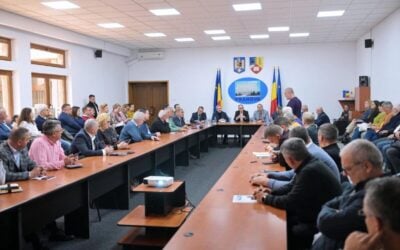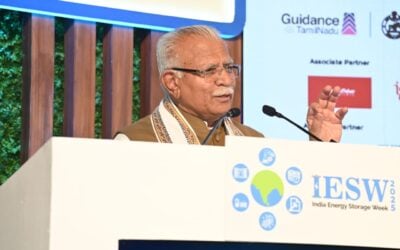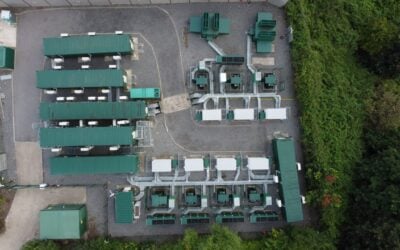
The Bulgaria’s Ministry of Energy began accepting applications yesterday (21 August) in tenders for 3,000MWh of energy storage capacity.
Called the National infrastructure for the storage of electricity from renewable sources (RESTORE), the programme seeks battery energy storage system (BESS) resources that will go into operation by March 2026.
Enjoy 12 months of exclusive analysis
- Regular insight and analysis of the industry’s biggest developments
- In-depth interviews with the industry’s leading figures
- Annual digital subscription to the PV Tech Power journal
- Discounts on Solar Media’s portfolio of events, in-person and virtual
The ministry released a statement a day prior to the application window’s opening. Energy minister Vladimir Malinov said the investments, worth up to BGN1,153,939,700 (US$657.4 million) “will guarantee the security and stability of the Bulgarian electricity system.”
Tender bids must be submitted electronically, with more information available on this portal.
Each bidder can apply for up to BGN148,643,080 in financial support, with up to 50% of the eligible costs to be covered. However, no application can receive more than BGN371,607.70, not including tax, per megawatt-hour of usable energy storage capacity.
Project costs incurred after the day the scheme was announced, 25 June 2024, will be recoverable. At the time of its announcement, the government invited public comment on the initiative, as reported by Energy-Storage.news.
EU’s post-pandemic recovery efforts supporting scheme
The scheme is funded by the European Union (EU) post-COVID Recovery and Resiliency Facility (RRF) and is part of Bulgaria’s National Recovery and Sustainability Plan (NRSP).
Back in 2021, as the EU’s European Commission (EC) was considering applications from the bloc’s 27 Member States for their share of up to €672.5 billion (US$749 billion) in funding through the RRF, the European trade association for energy storage, EASE, had warned the EC that leaving energy storage out of the scope of support would be a big mistake.
Since then, along with the funds for Bulgaria’s RESTORE scheme, the EU has approved state aid and incentive schemes to support energy storage in various other countries.
They include a €350 million scheme in Spain, grants worth €150 million in Slovenia and a €1.1 billion Hungarian government state aid plan to support large-scale energy storage as well as schemes in Romania and Greece.
‘Europe’s largest distributed energy storage tender’
Meanwhile, in Poland, state-owned power company Polska Grupa Energetyczna (PGE) said it would apply for funding from the nation’s KPO Recovery and Resilience Fund worth €60 billion as it began tendering for a large-scale battery energy storage system (BESS) of 263MW and at least 900MWh capacity in June.
Earlier this month, PGE, which is a retail utility as well as a public power generator, also launched what the company claimed is Europe’s largest tender for distributed energy storage facilities to date.
On 13 August, PGE said it is seeking to deploy 26 systems, with capacities ranging from 2MW to 10MW, for a total of 107MW/214MWh of electricity storage.
“The project of building distributed energy storage is a market response to the demand of local distribution systems for the possibility of storing surplus renewable energy and then using it when demand exceeds its supply. This will not only support the stable operation of the grid but will also contribute to the optimisation of prices on the energy market,” PGE management board president Dariusz Marzec said.
“Increasing the potential of the flexibility sources of the National Power System, including the number and capacity of energy storage installations, is the most effective support for the development of renewable energy sources.”
See more information on the PGE tender.
In a sponsored article for Energy-Storage.news last December, Silvestros Vlachopoulos and Jon Ferris from consultancy LCP Delta wrote about the prospects for energy storage market development across Eastern Europe, highlighting Poland as the country with the greatest immediate potential due to the start of capacity auctions.
While that has so far been the case in initial auction rounds, de-rating factors proposed by the government for forthcoming auctions could destabilise and otherwise negatively impact market growth, Energy-Storage.news heard in June from Michał Maćkowiak, managing director of the Poland arm of BESS developer Harmony Energy.






